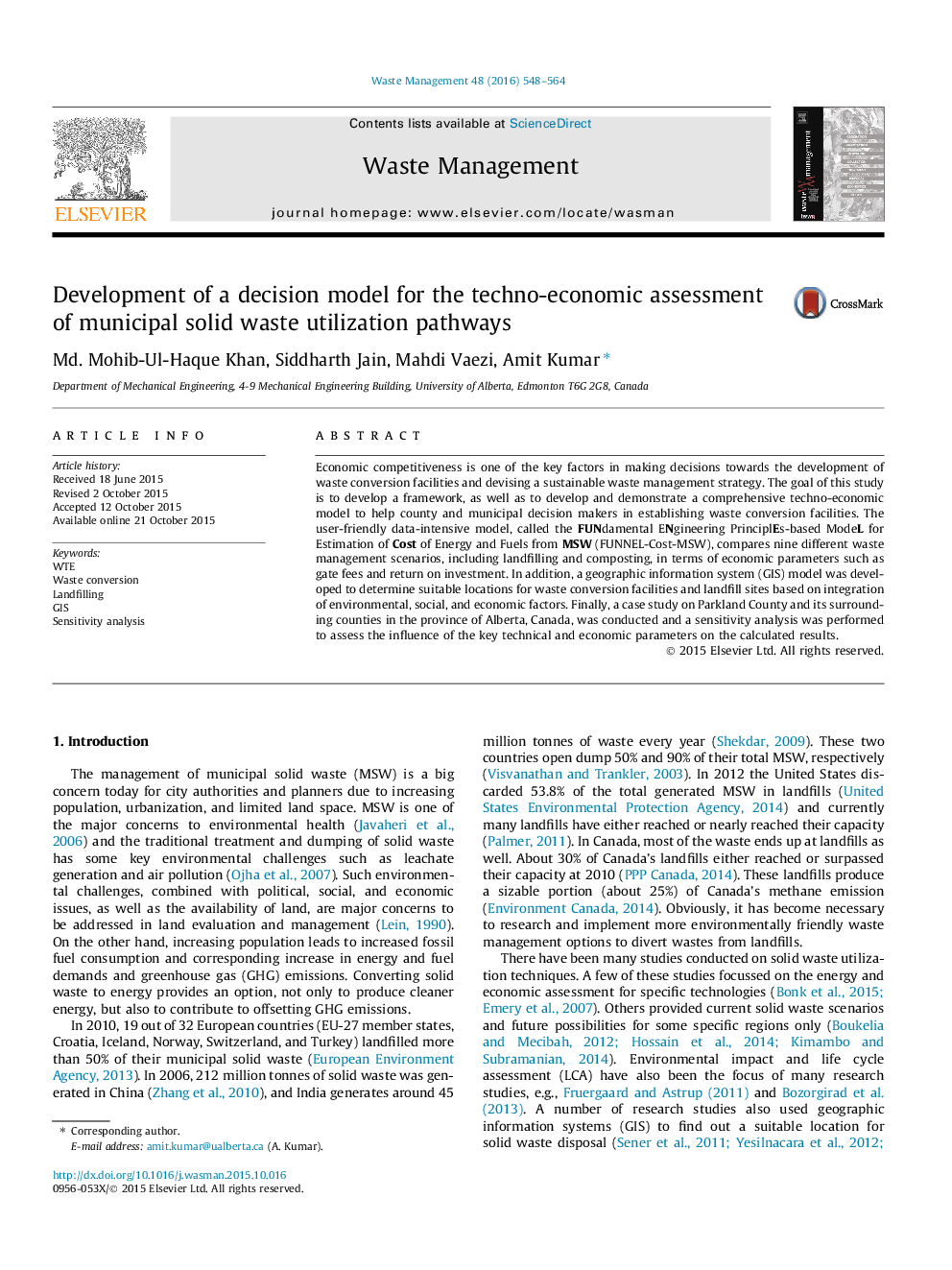| Article ID | Journal | Published Year | Pages | File Type |
|---|---|---|---|---|
| 6354219 | Waste Management | 2016 | 17 Pages |
Abstract
Economic competitiveness is one of the key factors in making decisions towards the development of waste conversion facilities and devising a sustainable waste management strategy. The goal of this study is to develop a framework, as well as to develop and demonstrate a comprehensive techno-economic model to help county and municipal decision makers in establishing waste conversion facilities. The user-friendly data-intensive model, called the FUNdamental ENgineering PrinciplEs-based ModeL for Estimation of Cost of Energy and Fuels from MSW (FUNNEL-Cost-MSW), compares nine different waste management scenarios, including landfilling and composting, in terms of economic parameters such as gate fees and return on investment. In addition, a geographic information system (GIS) model was developed to determine suitable locations for waste conversion facilities and landfill sites based on integration of environmental, social, and economic factors. Finally, a case study on Parkland County and its surrounding counties in the province of Alberta, Canada, was conducted and a sensitivity analysis was performed to assess the influence of the key technical and economic parameters on the calculated results.
Related Topics
Physical Sciences and Engineering
Earth and Planetary Sciences
Geotechnical Engineering and Engineering Geology
Authors
Md. Mohib-Ul-Haque Khan, Siddharth Jain, Mahdi Vaezi, Amit Kumar,
